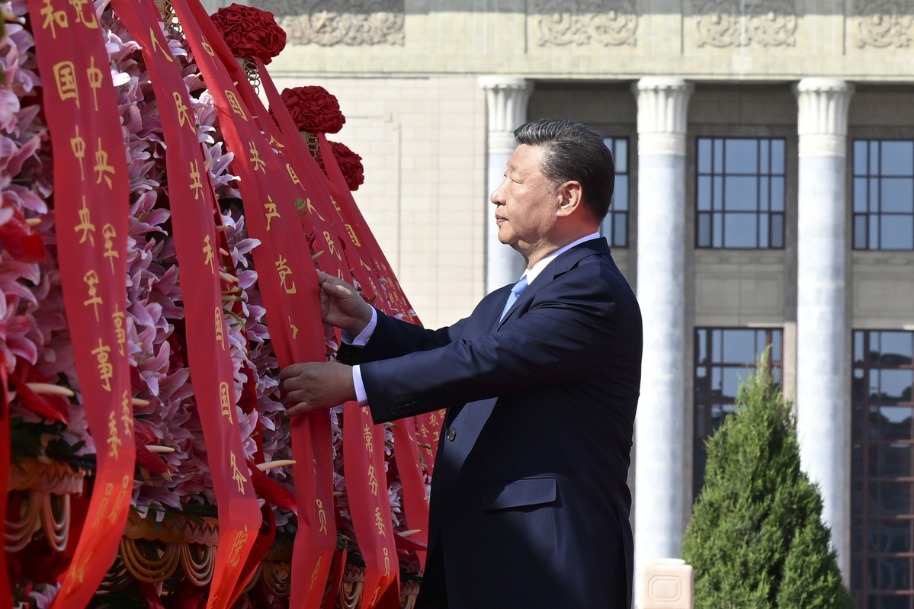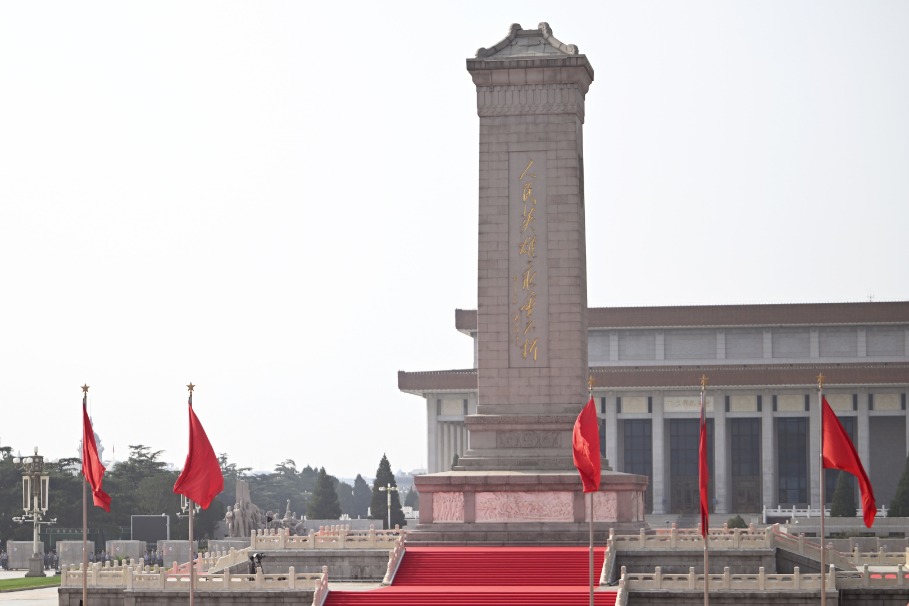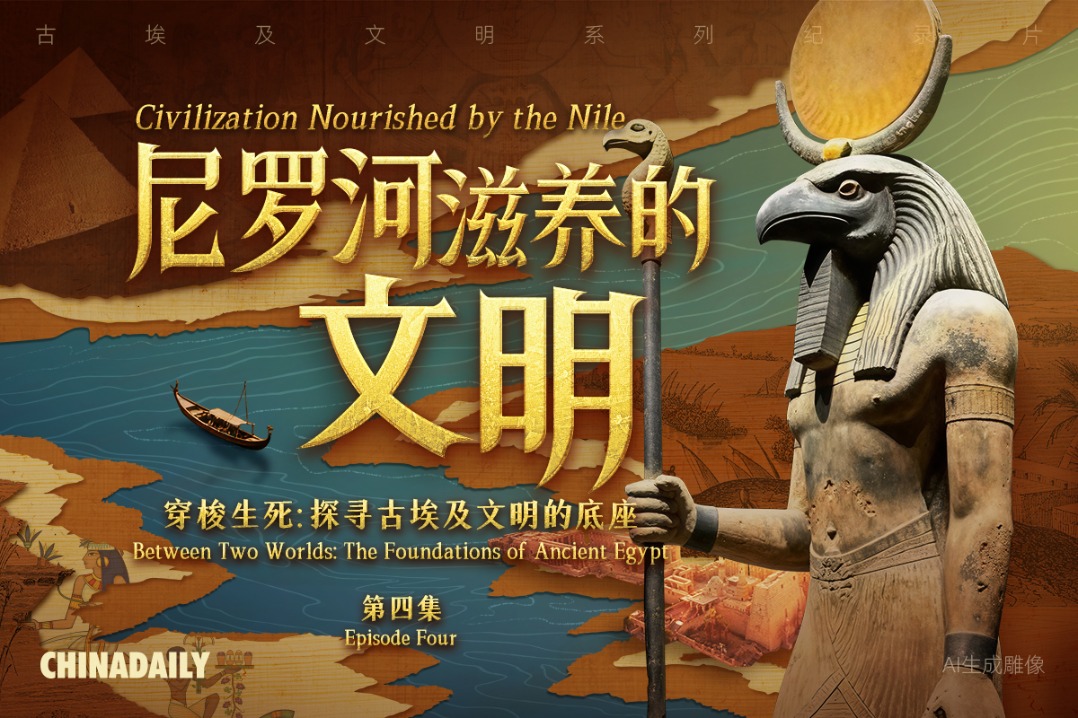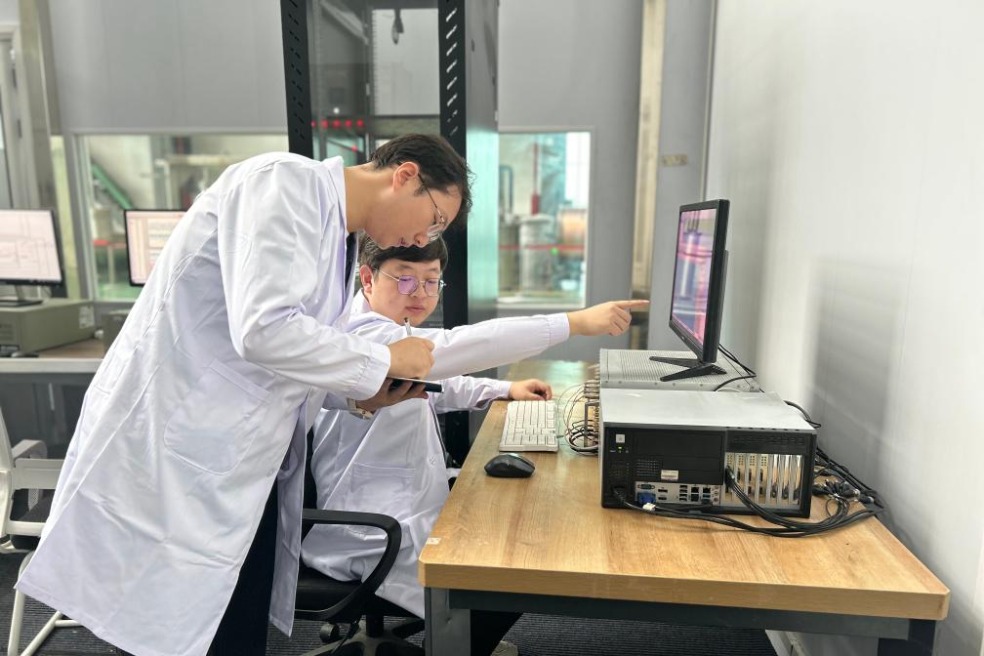POLITICAL ADVISORY BODY RINGING OUT AS PEOPLE'S VOICE
CPPCC refines role, looks to help advance nation's modernization drive





On Sept 21, 1949, shortly before the birth of the People's Republic of China, a diverse array of representatives from across the nation — including leaders of political parties, intellectuals, ethnic minorities and overseas Chinese — converged in Beijing, optimistic about helping shape the country's future.
They had assembled to take part in the inaugural plenary session of the Chinese People's Political Consultative Conference.
The delegates had responded to Chairman Mao Zedong's call on May 1, 1948, when the War of Liberation (1946-49) was still underway, to engage in a political consultative conference and unite to forge a new nation.
This landmark gathering in Beijing was extended until Sept 30, and laid the groundwork for the establishment of the People's Republic of China. Deliberations centered on key issues such as deciding the location of the capital city, the national flag, and the national anthem. On Oct 1, many of the participants stood shoulder to shoulder with Chairman Mao atop the Tian'anmen Rostrum and bore witness to the birth of New China.
The CPPCC subsequently evolved into a key institution fostering multiparty cooperation, with political consultation forming its bedrock.
Eager to listen
The 2,000-plus members of the current 14th CPPCC National Committee have been divided into 34 participating groups, mainly political parties, people's organizations and various industries. They serve as advisers for government, legislative and judicial bodies and put forward proposals on major political and social issues.
Their suggestions are sent to State leaders and government departments for reference in making decisions. The topics are closely related to the central tasks of the Communist Party of China and the State, including economic development, healthcare and environmental protection.
Yu Chunshui, vice-president of Tianjin Medical University, became a member of the CPPCC National Committee last year. His proposals have included strengthening the provision of home-care nursing staff, enhancing the training of talent in the high-end medical technology field, and promoting the high-quality development of the silver economy.
One of his proposals has been adopted by government departments. Another has been designated as a key proposal for this year, and is under deliberation by the relevant departments. "This gives me a deep sense of achievement in political consultation work," he said.
His participation in consultative democracy started in 2007 when he joined the Chinese Peasants and Workers Democratic Party. He later became a member of the Tianjin Municipal Committee of the CPPCC in 2018.
His party was among the eight non-CPC parties that expressed their support for the CPC's call to launch the New China and then became a participating group in the CPPCC.
The Chinese Peasants and Workers Democratic Party primarily consists of members with expertise in the healthcare, human resources, natural resources and ecological protection sectors.
"All democratic parties are participatory parties of socialism with Chinese characteristics and should be good advisers, assistants, and colleagues of the CPC," Yu said.
He recalled proposing a solution to challenges a university faced in disposing of outdated equipment. Officials from Tianjin's finance and education departments visited the university, discussed the issue, and quickly came up with a solution to the long-standing problem.
"The experience made me understand the significance of consultative democracy," he added.
Sharing experiences
Alvis Lo Iek-long, a member of the National Committee of the CPPCC from Macao, said his understanding of whole-process people's democracy comes from his experiences in Henan, a province located over 1,500 kilometers away from the special administrative region.
Macao and Hong Kong do not have their own CPPCC committees. Outstanding representatives from the two special administrative regions can be assigned to different mainland provinces and cities.
"In Macao, we are offered opportunities to participate in different provincial and municipal CPPCC activities, depending on our work performance and capabilities," Lo said.
He benefited from this experience and served on the CPPCC Henan Provincial Committee. Lo later brought some young people from Macao to Henan to explore the Central Plains culture and integrate with the local people.
"From a historical and cultural perspective, we aimed to help our young people understand our country better," said Lo, who also serves as vice-chairman of the All-China Youth Federation.
"This can enable Macao to better integrate into the overall development of our nation. It provides youth in Macao with opportunities to engage with our national political system."
Pan Yuping, a national political adviser based in Sichuan province, is a member of the Taiwan Democratic Self-Government League, one of the eight non-Communist political parties. Taiwan compatriots also have the chance to participate in whole-process people's democracy through the political advisory body, Pan said.
During Sichuan Provincial CPPCC meetings, Taiwan youth are invited to participate. They also take part in research tours to better understand the development of the mainland, and increase their understanding of the political system and democratic procedures.
"This ensures they gain a thorough understanding of our whole-process people's democracy," Pan said. "And, they find life here is very fulfilling, so they are keen to share their positive experiences with their friends and family back in Taiwan."
Clarence Ling Chun-kit, a CPPCC National Committee member from Hong Kong, said his understanding of democracy is reflected in something as simple as a train ticket.
The youth entrepreneurship base in Nansha district in Guangzhou, Guangdong province, is close to Hong Kong and draws young people from Hong Kong to embark on entrepreneurial journeys in the Guangdong-Hong Kong-Macao Greater Bay Area.
However, transportation had long hampered the process, as train tickets between the cities are in high demand and often sold out. Last year, Ling submitted a proposal to increase the frequency of trains between Nansha and Hong Kong to foster greater regional integration.
"About three to four months later, the Guangdong Development and Reform Commission called me. I was surprised, because I didn't expect them to contact me. Then we had a long chat," Ling recalled.
The number of high-speed train services, which used to be only four round trips per day, has since been increased. "I submitted proposals and different government departments took them very seriously," he said.
Future role
At a meeting celebrating the 75th founding anniversary of the CPPCC held in Beijing on Sept 20, President Xi Jinping called for further giving full play to the salient political advantage of the political advisory body in developing whole-process people's democracy.
It has been proven through practice over the past 75 years that the CPPCC is an innovative political system involving political parties, prominent individuals without party affiliation, people's organizations, and people from all walks of life and all ethnic groups under the leadership of the CPC, said Xi, also general secretary of the CPC Central Committee and chairman of the Central Military Commission.
The CPPCC should leverage its strength in pooling talent and wisdom to focus on addressing major, difficult and hot spot issues in areas such as the advancement of Chinese modernization, and enhance consultation and deliberation, he said.
Xi stressed the importance of improving the mechanism that ensures thorough consultation and interactions, where diverse opinions are expressed fully and broad consensus is reached, as well as the construction of the mechanism reflecting social conditions and public opinion, and engaging with and serving the people.
Wang Xiaohong, a professor at the Central Institute of Socialism, said that the CPPCC has embarked on a remarkable 75-year journey, evolving through refinement and development, and playing a pivotal role across various historical epochs.
The CPPCC epitomizes substantial inclusivity in the realm of politics, Wang said.
"It adapts to the evolving core tasks and shifting societal landscapes throughout China's history, and adeptly adjusts its composition to foster the broadest possible unity among individuals from diverse classes, strata, beliefs, and interests," she said.
A defining characteristic and strength of the political advisory body is its emphasis on consultation, which serves to cultivate widespread unity, propel multiparty cooperation, and uphold the principles of people's democracy, Wang said.
CPPCC members hailing from the grassroots, actively convey the voices and aspirations of the populace to the Party and government, and engage in democratic deliberations to forge consensus on critical matters, she said.
"Simultaneously, they engage with the public, disseminating and elucidating the policy stances of the Party and government to foster consensus-building within society," Wang added.
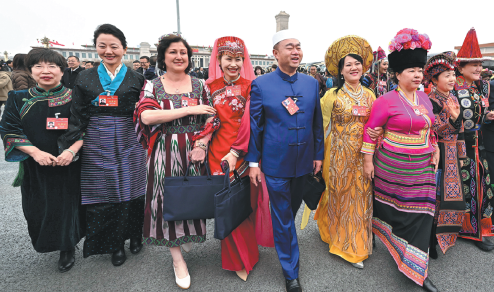
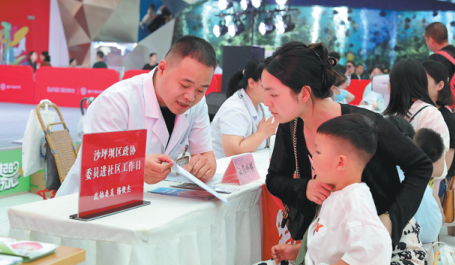
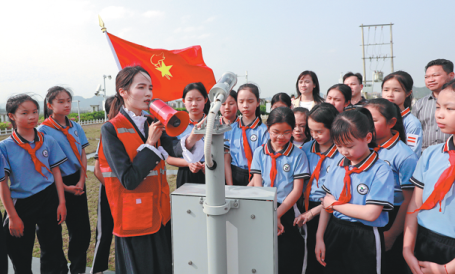
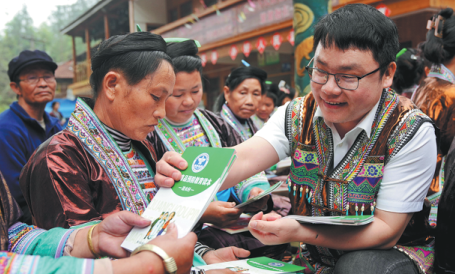

Today's Top News
- China releases position paper on UN General Assembly Resolution 2758
- Xi calls for forging ahead with determination in advancing Chinese modernization
- Xi's article on community for Chinese nation to be published
- Xi pays tribute to national heroes on Martyrs' Day
- China taking measures to end cervical cancer among women and girls
- Culture tourism fuels global exchange













